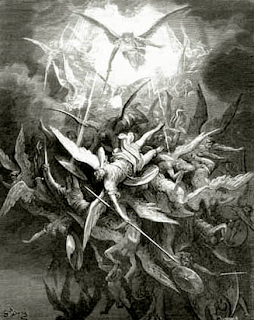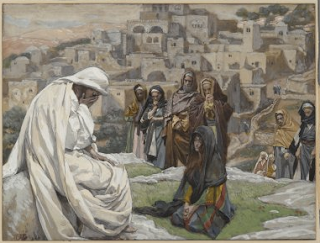 |
| Image: Pixabay |
TO CHEW ON: “If a man has a stubborn and rebellious son who will not obey the voice of his father or the voice of his mother and who, when they have chastened him, will not heed them, then his father and his mother shall take hold of him and bring him out to the elders of the city, to the gate of his city.” Deuteronomy 21:18,19
One day before the February 14th Florida school shooting, a grandmother in Everett Washington reported her grandson to the police. This was after reading disturbing entries in his journal, entries in which he talked about shooting up his school (Read CNN article.)
What a test of family loyalty! And yet, for the greater good—the good of the community and this kid— this grandma reported her grandson for short-term pain.
The test of family ties in our reading is even more extreme. Parents were to bring their stubborn, rebellious, disobedient, gluttonous, alcoholic son to the elders, not for a scolding or a fine or lockup but stoning (Deuteronomy 21:21).
We’ve been studying the SHEMA which the Israelites prayed regularly:
“You shall love the LORD your God with all your heart, with all your soul, and with all your strength” - Deuteronomy 6:5.
Such a radical family “betrayal,” then, could be seen as part of that heart, soul and strength love for a God who hated, condemned and punished these sins.
Of course we now live in the New Testament church era. Jesus’ death on the cross has atoned for our sins of stubbornness, rebellion, disobedience, gluttony, addiction etc. It’s not that our current sin is any less serious, but that God’s holy wrath at our wrong-doing has been satisfied by Jesus’ death in our stead.
Still, I believe there is a principle for us here, seen in the singlehearted focus of the parents. Jesus in the NT also referred to the cost of following Him in Matthew 10:34-39. In that section he described how His coming into a life could have the potential to mess with relationships, especially in the family:
“‘For I have come to set a man against his father, a daughter against her mother, and a daughter-in-law against her mother-in; and a man’s enemies will be those of his own household. He who loves father or more more than Me is not worthy of Me. And he who loves son or daughter more than Me is not worth of Me'” - Matthew 10:35-37.
Do we have this OT/NT devotion to Jesus that trumps even blood ties?
PRAYER: Dear Jesus, may my love for You be stronger than any love tie on earth. Amen.
PSALM TO PRAY: Psalm 60
The Bible Project VIDEO: The Law (Theme series)
*********
Unless otherwise noted all Scripture quotations are taken from the New King James Version®. Copyright © 1982 by Thomas Nelson, Inc. Used by permission. All rights reserved.
Thanks for reading! This year we are using The Bible Project "Timeless Reading Plan" to read through the Bible in 2018. If you'd like to read along in your own Bible, you can download a pdf of the reading plan HERE.




